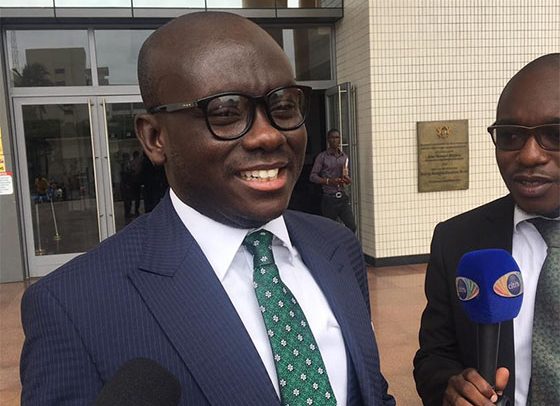Godfred Yeboah Dame
The Attorney General and Minister for Justice, Godfred Yeboah Dame, has stated that it is unhealthy for summary trial to stay in court for up to four years.
He said the development is ‘defeatist’ to the constitutional imperative for a fair hearing within a reasonable time as captured in Article 19 (1) of the constitution.
Speaking at the inauguration of the Law Reform Commission (LRC) Board in Accra on Tuesday, Mr. Dame said it would be refreshing for him to receive proposals for a review of the current Criminal Procedure Act (Act 30) in a manner as to aid in a real expeditious determination of summary trials.
He wants the commission to examine the possibility of amending Act 30 so as to virtually bar the possibility of persons utilising interlocutory appeals to frustrate the speedy resolution of criminal trials.
“We would be happy to receive the input of the board on same,” the Attorney General told members of the board after swearing them in.
The nine-member board is chaired by veteran Ghanaian lawyer and human rights activist, Anthony Akoto Ampaw, with other members drawn from the bench, bar and academia.
They are Justice Gertrude Araba Esaaba Torkornoo, Justice Yonny Kulendi, Prof Henry Kwasi Prempeh, Dr Ernest Owusu-Dapaa, Anita M. Heymann Ababio (Executive Director), Naa Odofoley Nortey, Ellen Bannerman-Acheampong, and Bright Okyere-Adjekum.
The Attorney General noted that one important piece of legislation introduced in Parliament in the past year, which he believes will have far-reaching consequences for the criminal justice system, is an amendment to the Criminal Procedure Act, 1960 (Act 30) to incorporate plea bargaining firmly into the trial of cases in Ghana.
Mr. Dame said he considers the plea bargaining legislation a significant innovation in the process of reform of the criminal justice system in Ghana, as it will have the ultimate practical result of easing congestion in the country’s prisons and improving the efficiency of prosecution.
Board Chairman of the LRC, Akoto Ampaw, on behalf of the members, expressed gratitude for their appointment to the LRC Board.
By its establishment law (Act 822), he said the commission is to play a central role in the process of law reform to ensure that the nation’s laws advance the freedoms and welfare of Ghanaians, and are responsive to changing times and participation of economic transactions as well as social and political activities.
“The reality, however, is that the commission lacks the range of professional capacities and material resources to effectively perform its functions much as it may wish so to do,” he indicated.
He revealed that the LRC had only two lawyers in addition to the Executive Director, and yet it is expected to carry out the “heavy responsibility” of law reform in a rapidly changing Ghanaian society.
BY Ernest Kofi Adu


